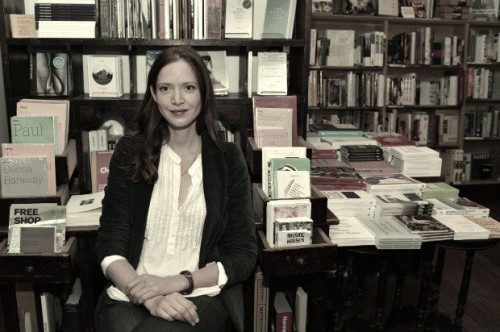In November’s Vanity Fair, Bruce Handy profiles George Whitman, the late owner of Shakespeare & Company — “the most famous independent bookstore in the world” — and his daughter Sylvia, the current owner of the shop:
Comments closedIt is not true, as the store’s workers have sometimes overheard passing tour guides proclaim, that James Joyce lies buried in the cellar. (If only. He was laid to rest at a conventional, non-bookselling cemetery in Zurich.) But the store’s roots do indeed reach back to the Shakespeare and Company that Sylvia Beach, an American expatriate, owned in Paris in the 1920s and 30s. As every English major knows, her bookshop and lending library became a hangout for Lost Generation writers such as Ernest Hemingway, F. Scott Fitzgerald, Ezra Pound, and Joyce, whose Ulysses was first published in its complete form by Beach because authorities in Britain and America deemed it obscene. She closed up shop during the Nazi occupation and never reopened. But her mantle was taken up by another American, George Whitman, who opened the present-day store in 1951, just as Beat Generation writers were finding their way to the Left Bank. (The so-called Beat Hotel, which would become a Parisian equivalent to New York’s Chelsea Hotel as a flophouse for writers, artists, and musicians, was only a few blocks away.) Writers who logged time at the current Shakespeare and Company, sometimes even sleeping there—Whitman was possibly keener on extending hospitality to authors, lauded or not, than on selling their books—include Allen Ginsberg, Henry Miller, Richard Wright, Langston Hughes, Lawrence Durrell, Anaïs Nin, James Jones, William Styron, Ray Bradbury, Julio Cortázar, James Baldwin, and Gregory Corso. Another early visitor, Lawrence Ferlinghetti, co-founded his City Lights Bookstore, in San Francisco, as a sister institution two years after Shakespeare’s opened. William S. Burroughs pored over Whitman’s collection of medical textbooks to research portions of Naked Lunch; he also gave what may have been the first public reading from his novel-in-progress at the store. (“Nobody was quite sure what to make of it, whether to laugh or be sick,” Whitman later said.)







